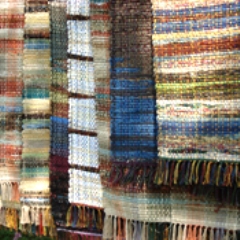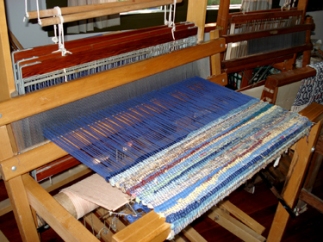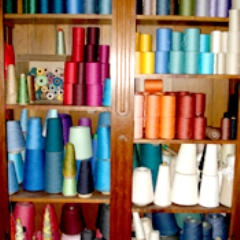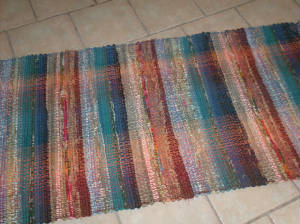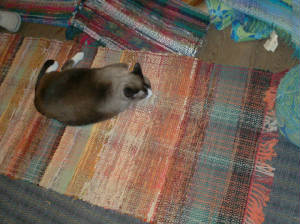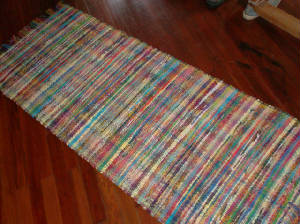|
|
|
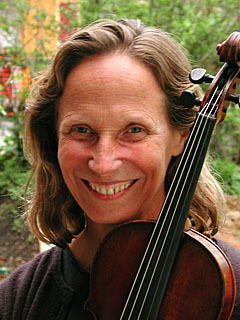 Having survived the ravages of Katrina, Daron Douglas's New Orleans cottage is today filled with the brilliant colors of her hand-woven fabric rugs. Not only did her loom survive, her rugs seem to be flying off the shelves (figuratively, of course). "I've sold more rugs in the past two years than I ever have, " she says, almost surprisingly. However, for those familiar with Daron's craft, the popularity of these unique rugs should not be a shock. And although she typically has about three orders at a time, she's careful to keep the craft personal. "I want to make what I envision," she says. "I don't want to try to figure out what people want." Being surrounded by art, water and music in New Orleans, Daron has rarely experienced a weaver's block. Inspired by the light of Lake Ponchatrain, her blooming garden and Joan Mitchell paintings, she is following an unbroken family tradition, and continues to weave recycled pieces of fabric that catch the light and spread it across wide bands of color.
Or as she explains the process,
"Weaving rugs is a way of playing music with these impressions, a way of bringing them underfoot into everyday life,
a way of bringing new life to my grandmother's tradition." Daron has been weaving for years, and she continues to enjoy the craft of making rugs. The weaving process is fairly physical, but, she admits, does not require much thought. She gleefully recalls a memory when her son, Colin, a toddler at the time, equated her weaving to "building a rug." Compared to the abundance of quilt and rug makers near her hometown of Blaine in rural East Tennessee, NOLA didn't initially have the same demand or appreciation for hand-woven rugs. But that soon changed. Today, Daron is contented as an artist in the heart of New Orleans, because the area is a sanctuary for creativity.
|
